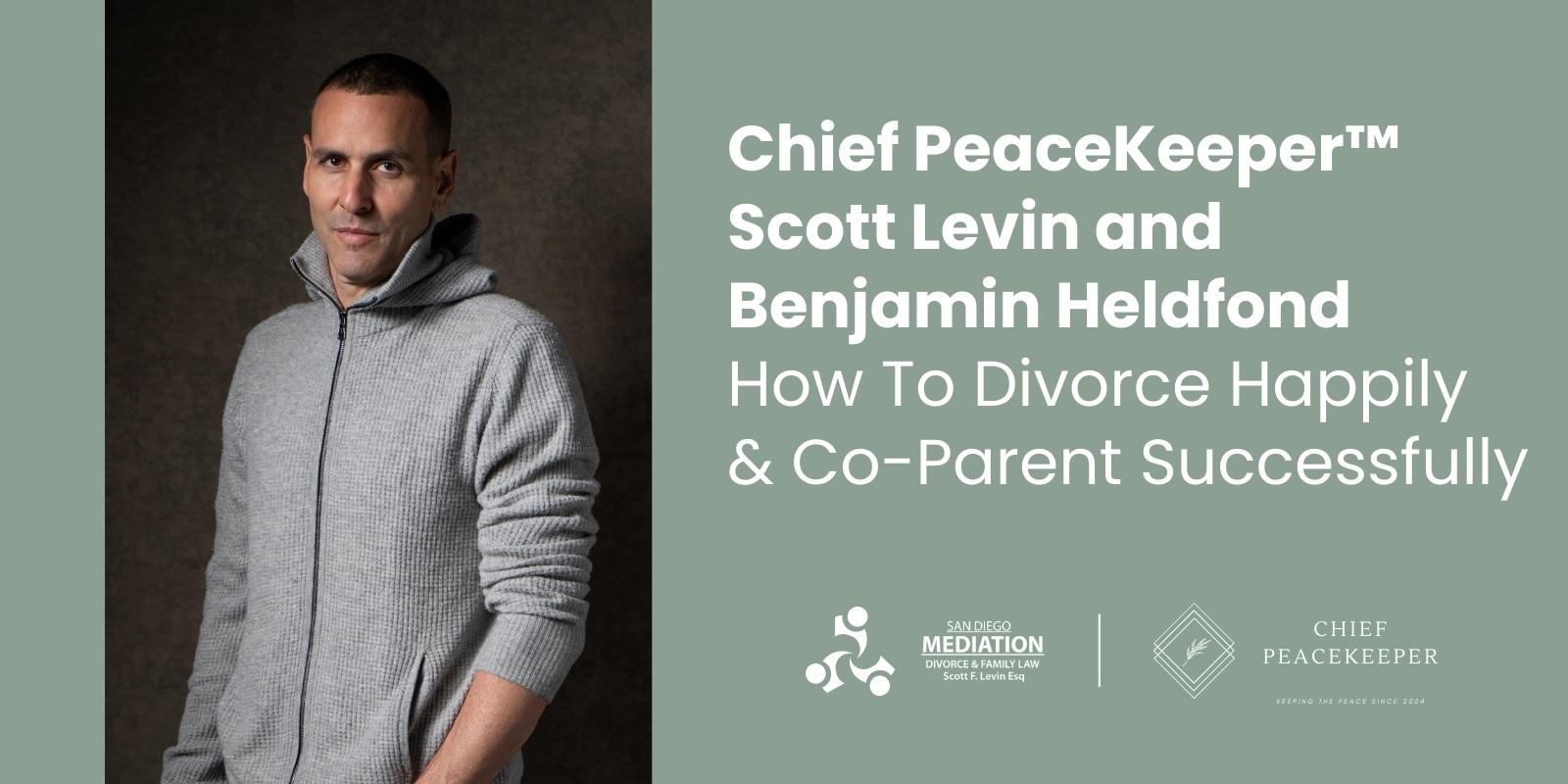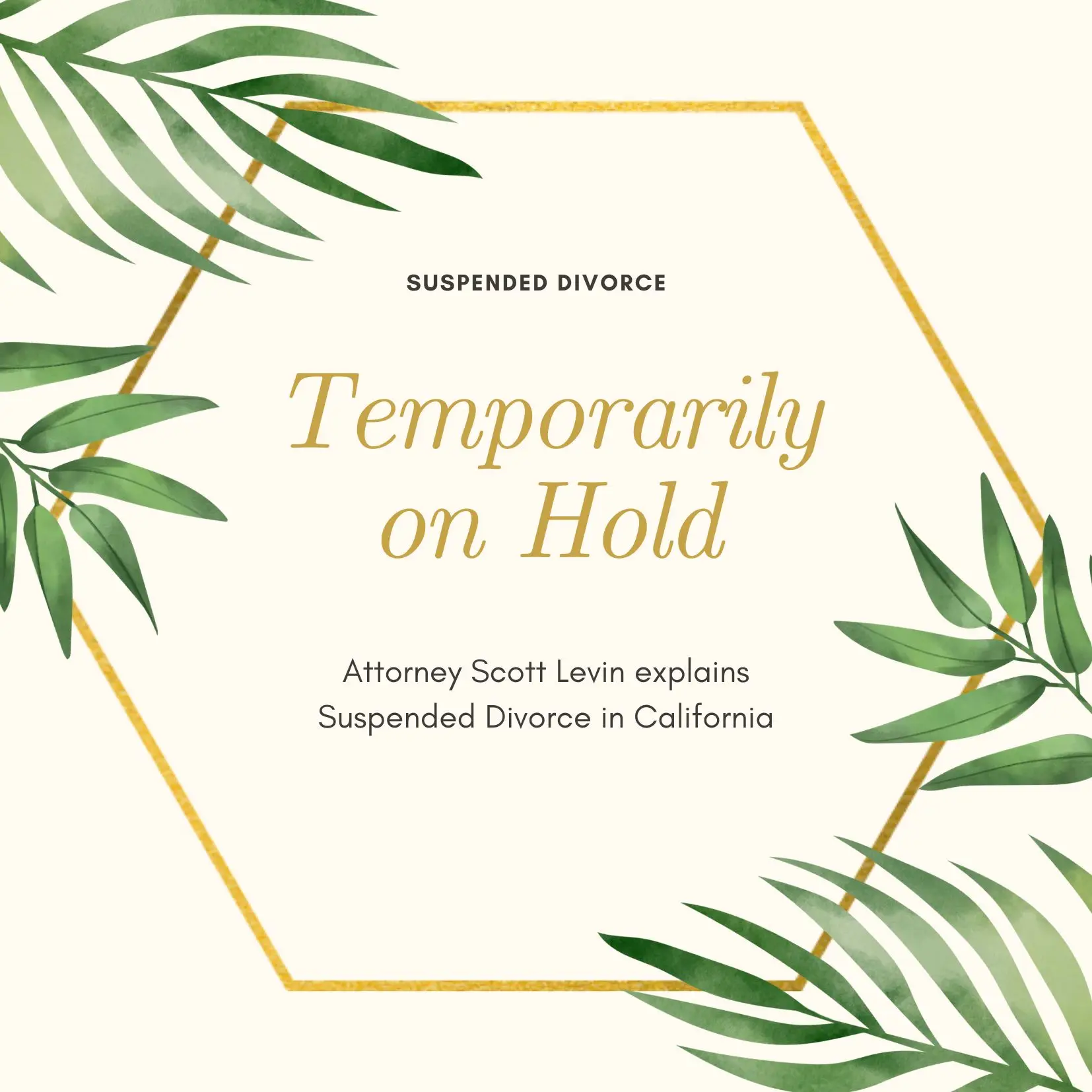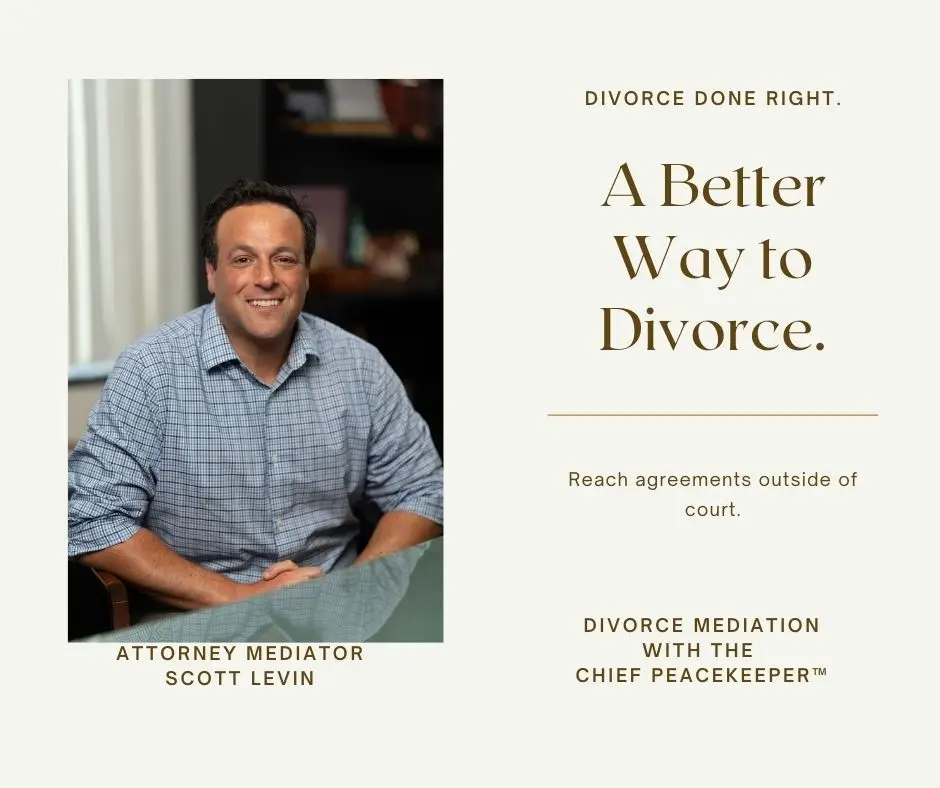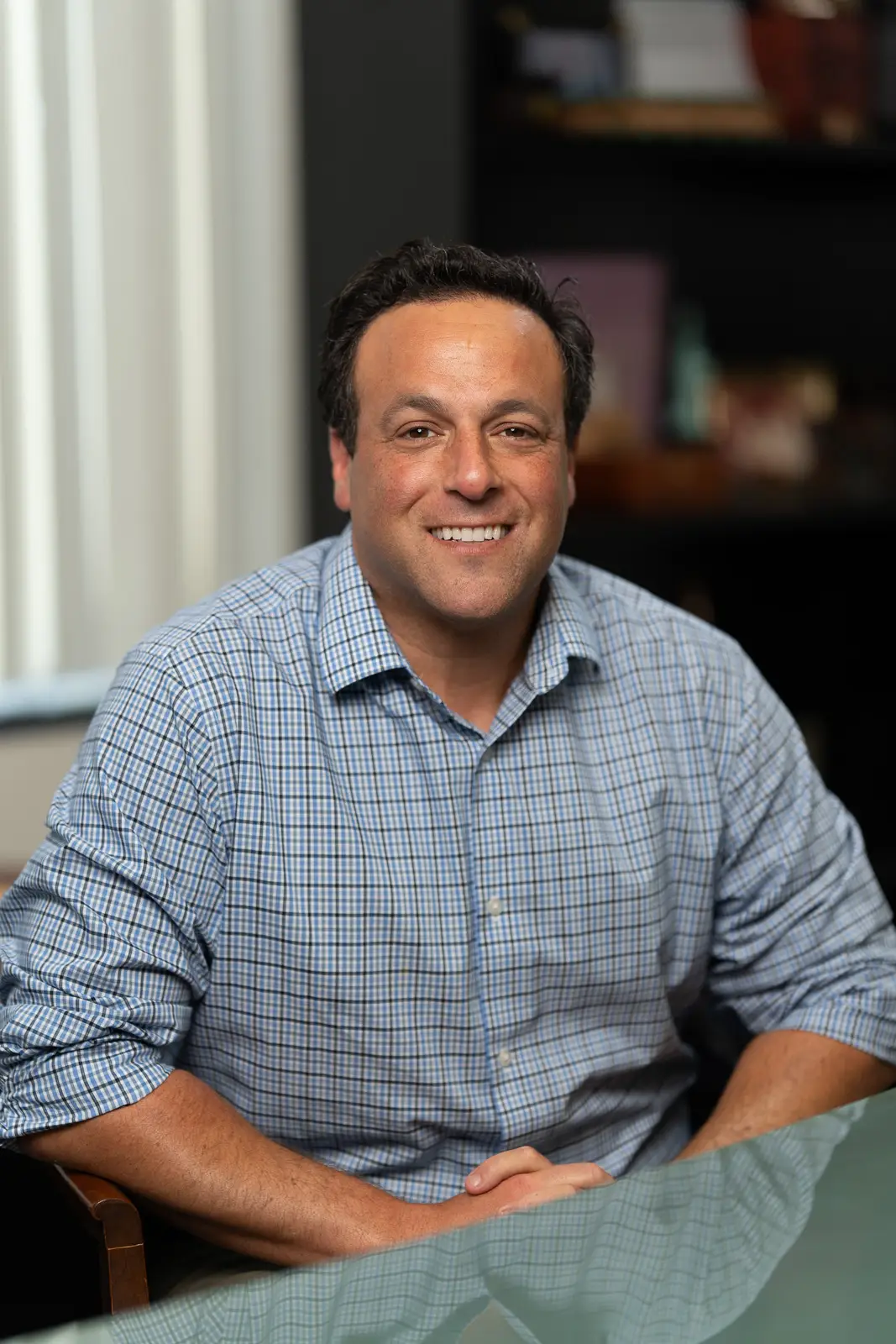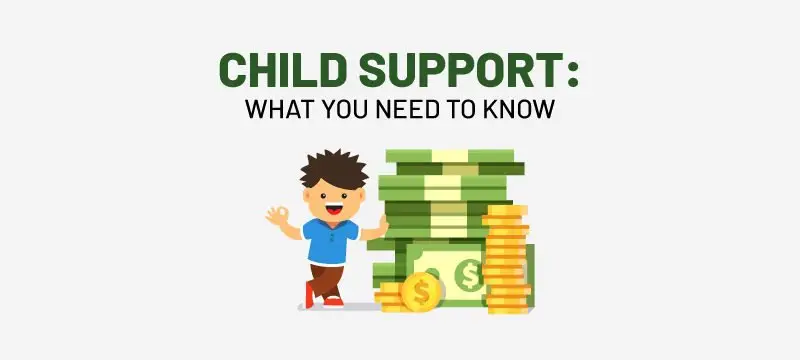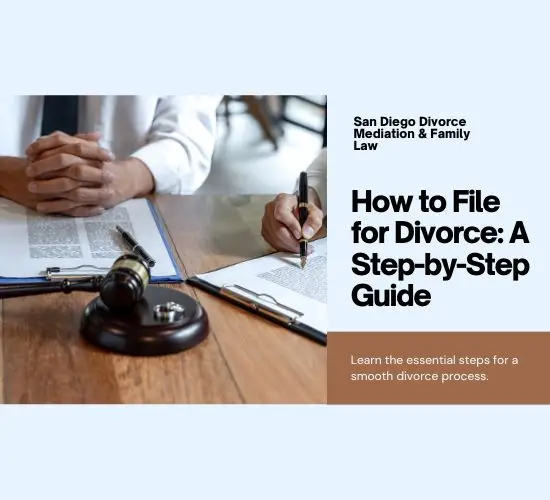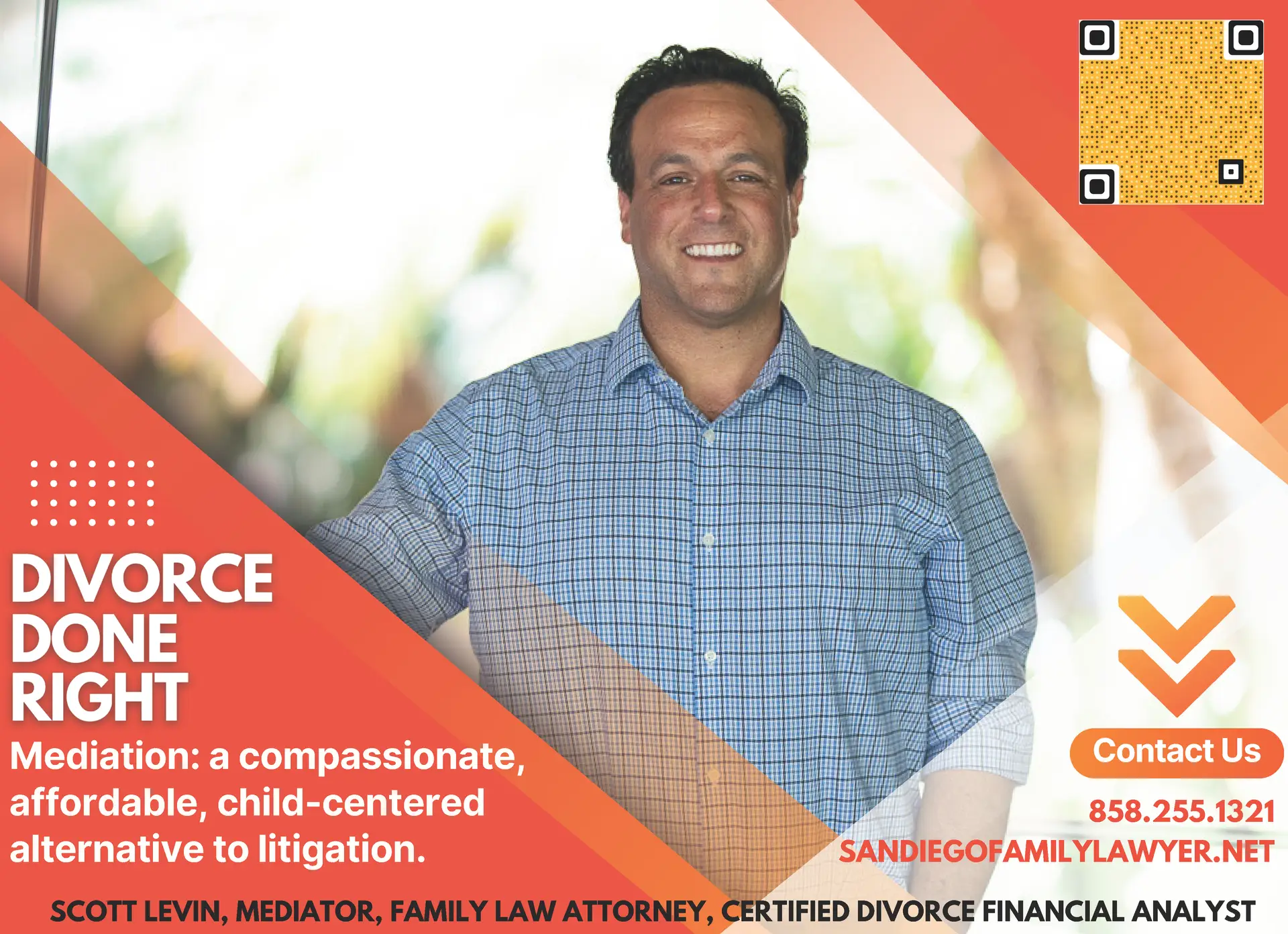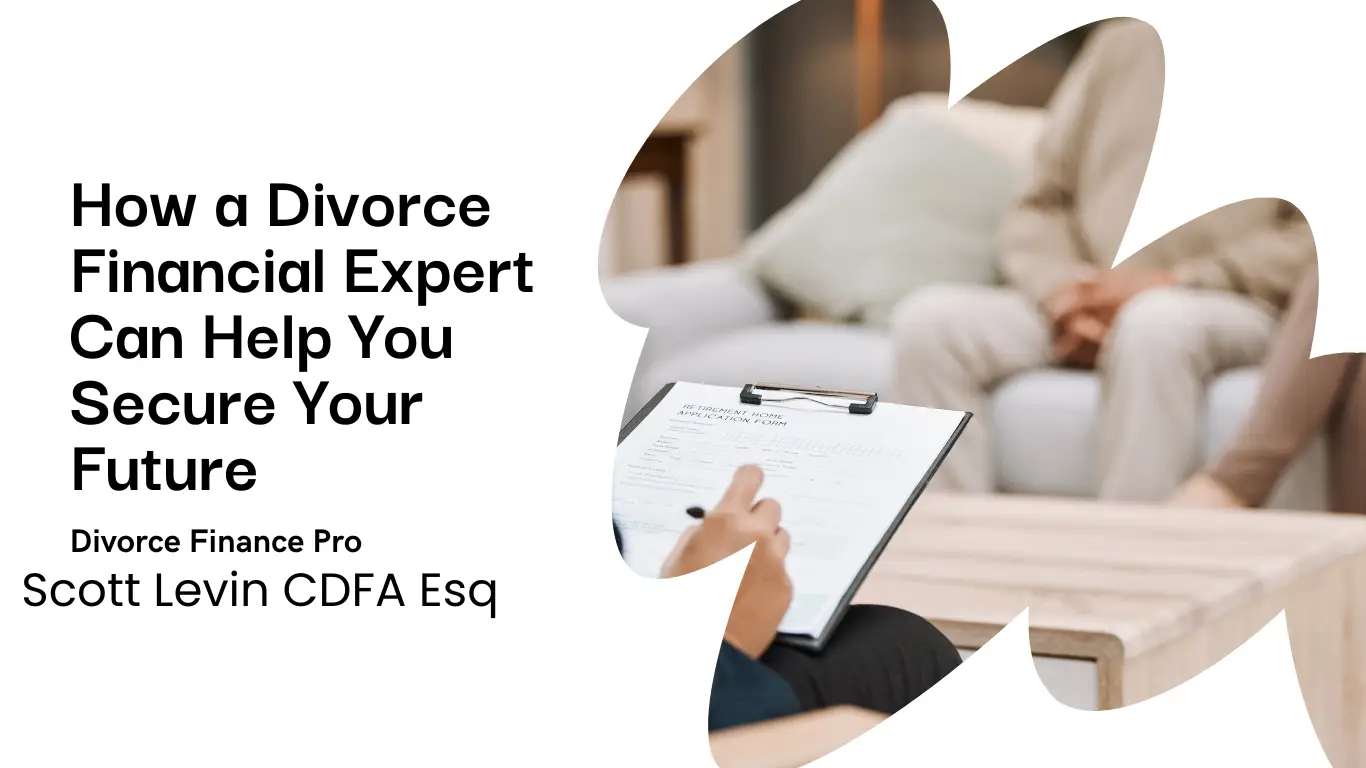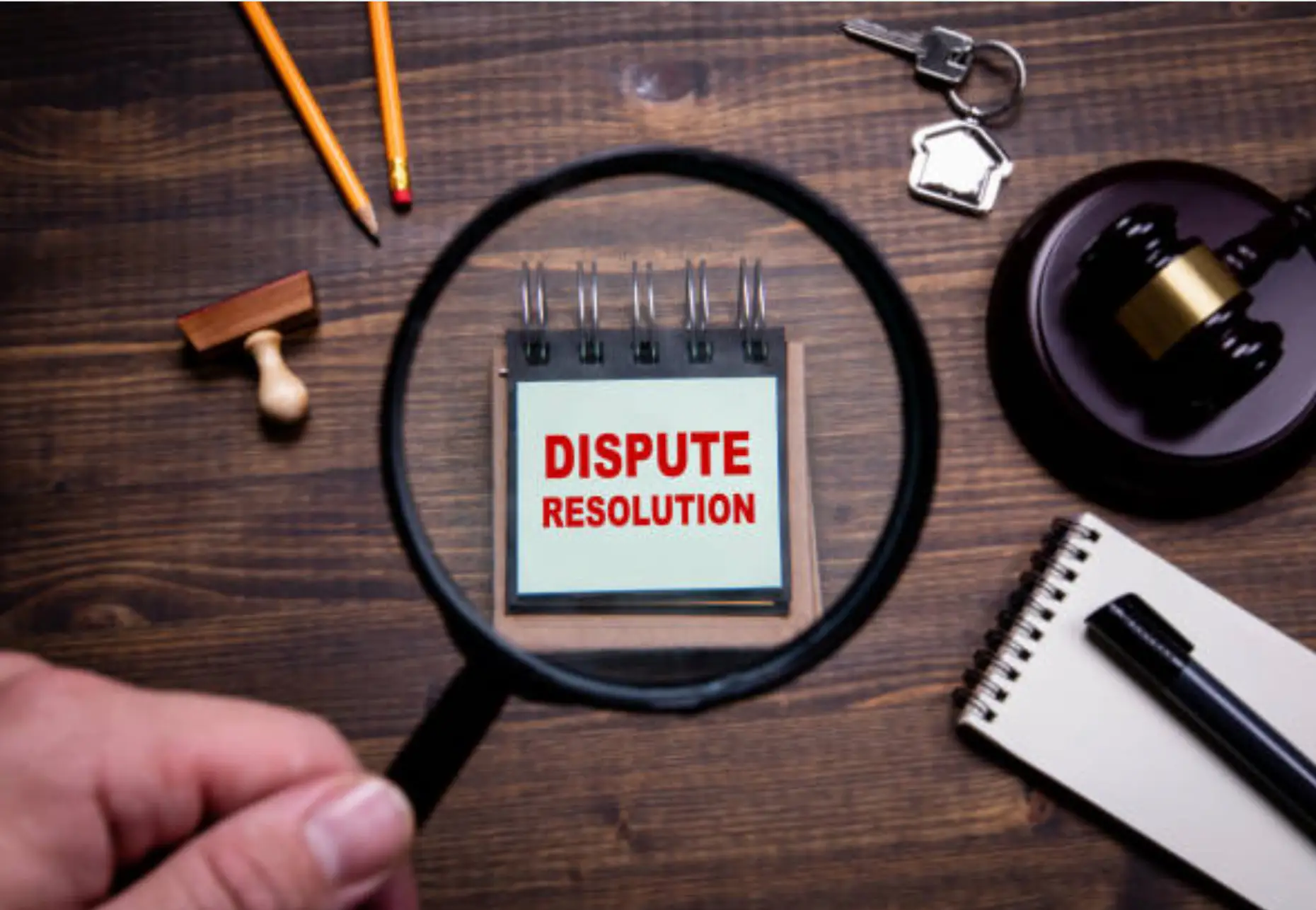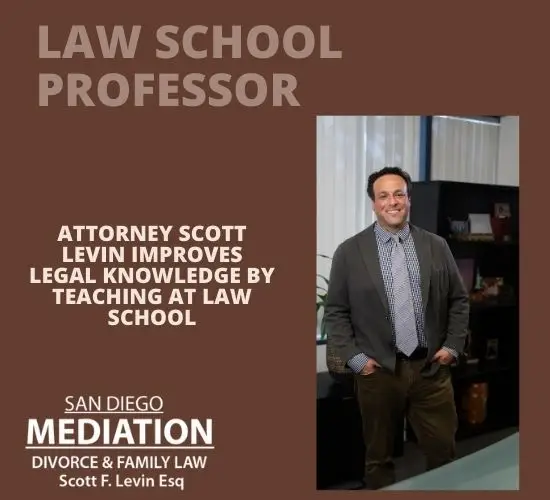Benjamin Heldfond has written an amazing book titled ‘Our Happy Divorce’ in which he recounts his separation from his ex-wife but incredible friend Nikki.
Chief PeaceKeeper™ Scott Levin 0:02
Hey, this is Scott Levin, founding partner at San Diego Divorce Mediation, and I am here today with Benjamin health on how are you, Benjamin?
Benjamin Heldfond 0:13
Good. Thanks for having me. Scott, the chief peacekeeper™. I’m honored.
Chief PeaceKeeper™ Scott Levin 0:17
Yes, sir. Thank you. And we’ve actually become friends, Ben wrote an amazing book called our happy divorce with his ex-wife. And we connected and if you’ve watched a recent video that I posted, I just kind of wanted to extend upon that conversation with Ben, in that previous video was I had my two-year-old on my lap, and I was trying to talk to everyone about how you and your spouse love your kids, more than any lawyer more than any judge member more than any paralegal ever could. I mean, it’s all about what you guys created. And if you have children, but unfortunately, things aren’t working out, and you know, want to move in a different direction and divorce, there’s an alternative path, and our happy divorce the book, I have it right here. It is literally the most amazing book that I’ve read from two people that have gone through the process. And, Ben, thank you for writing it. It’s you know, we’ve been texting and talking about it. I really commend you and Nikki for, you know, that collaboration that you guys put together, not just for the book, but for your lives.
Benjamin Heldfond 1:33
Well, thank you. And that, you know, that’s you nailed it right on the head is I think if you, you know, put a gave everybody a truth serum, right. And they had to tell the truth, even in the nastiest divorces, that if you were to ask the other spouse, whether the other one loved their children, nine out of nine would say, yes, they love their children. So that’s the foundation of what our happy divorce was, you know, it wasn’t great. In the beginning, I don’t think anybody leaves a marriage and goes to sue their lawyer because their marriage is on a winning streak. You know, there are some very difficult emotions, that it deals with probably the worst emotions, especially for a man, you know, the romance and the finance buttons, once those are pushed, you know, we have a tendency to go off-kilter. But at the root of it all was love for our child and not wanting to stick him with the emotional bill, you know, of our decisions for something he had no choice.
Chief PeaceKeeper™ Scott Levin 2:36
Yeah, and you really spoke so eloquently, in my opinion about, you know, right at the beginning, when the emotions were running high, I kind of want to just talk about that time in your life during this brief call. Because you know, people are in a very, very precarious position. When they decide, you know, it’s not working out, you take off the wedding ring, you put it on the table, as you described in your book, and you walk out and you’re like, I’m fired up, like, you know, I want, I’m ready to get after it now. And you talk about putting your entire lens that you guys looked at everything through was how is this going to affect Asher? I think it was three or four at the time of this right? All going down? How did you control your emotions? And, you know, create that lens so that you were so future-focused and trying to do the right thing?
Benjamin Heldfond 3:35
Well, I wish I could say, Well, at first, but it wasn’t the case. You know, and as you said, and I have to clarify it, because it Yeah if Nikki were here, she would make sure she pointed it out. But I left that it’s not one of my finest moments in life, It was probably the most dramatic thing I’ve ever done. And I took off my ring. And I took a picture of Nikki and I ripped it up and I put the ring right in the middle of the picture and walked out of the house, you know, very dramatic. But at the same time, it was those emotions that I was talking about earlier. And that is the most important thing for people I think to realize at least it was for us because of desperation in that spot of fear and resentment. Look, that is where cults are built. That that is where you know, religion and snake oil salesman and all the bad things live and breed. And that’s because people are so desperate, I was so desperate that the first lawyer I spoke to, you know, I was listening to and what I was going to get and all this stuff. So you know, when you’re young and the other thing is when you’re feeling that way at least when I was feeling that way. It’s so much easier to point the finger at somebody else, right? It makes your behavior and your actions justifiable. To sell can’t be me, it’s her. And so for us or for me what it took was it at a moment, after I’d seen this lawyer, and after I was gonna go out for blood, but I was on a plane. And he had written up this, you know, game plan, basically, of what and how we were going to go after Nikki, you know exactly what I told him I wanted to do. And I got about two pages into it. It was pretty long. But I got about two pages into it. And I immediately got honest, and it was the first time I was honest, in a long time, about, you know, the fact that this can’t all be Nikki’s fault. You know, it was an understanding, not really knowing where it was or how it was going to look. But it was an understanding that it takes to make a relationship and it takes to break a relationship. So there’s no way that this could all be Nicky’s fault. Now there are, I just think it’s clear to just say that there are some caveats to that, you know, the sexual abuse and physical abuse and, and stuff that’s outside our paygrade. But for the most part, you know, in any relationship, there cannot be one villain. So that was the journey, you know, that we took, and the most important thing I think we did, which I think should be mandatory in all 50 states, in every county in this country, is a break from the decision to take a divorce, to actually go into even see a lawyer. And I know that’s not reasonable, right. But it deals it, you hear a lot about never mixing business, and feelings, right? Taking emotions out of business. And I’m not. I might sound apathetic now, but believe me, I’m not. But divorce at the end of the days of business, or agreement, and a business deal between two parties, because you’re dealing with assets, and you’re dealing with, you know, split off a lot of things. Every bad business deal I’ve ever been in every mistake I’ve made with selling a house, when I look back on it is because I had emotion and I had something tied to it. So Nikki, and I took that break in the beginning. And we went our separate ways. And we obviously were still co-parenting our son, but we were working on ourselves. And we were trying to find the answer to that, you know, $64,000 questions, what was my part in the ending of the marriage? And that that that is what our happy divorces is founded on? You know, accountability, honesty, and forgiveness.
Chief PeaceKeeper™ Scott Levin 7:31
Yeah, and when people are in that position, where they’re just deciding, you know what to do. And, and you guys went through what’s called a collaborative law practice process, which is basically but really what you did was, you guys met at Starbucks every week or so, or maybe even more so than that. And you guys really started talking about, you know, well, where do we want to? What do we want this to look like when we look back on this time? Like, what do we want? What do we want to do for our son? What do we want to do for each other? How do we want this to be? Can you imagine, you know, what, how much different things would have been if you would have engaged that lawyer and given him or her permission to, you know, file the petition and go out and
Benjamin Heldfond 8:18
fire that missile? Yes. Well, I can’t imagine. And that’s because I’ve seen it, I’ve seen it, you know, unfortunately, I lived with my parents, which was not a happy divorce. But I’ve also seen it and heard stories of it, you know, today and just running into people is that the end of the day, when a high conflict, divorce gets done, if it ever gets done, the end of the day present company excluded, but the only one that wins are lawyers. And we look at it too much as wins and losses, and us versus them. And, you know, Nikki and I didn’t have all the resources that are out there today. You know, when we got divorced is crazy. It was 13 years ago, but there was no Facebook, there was no Instagram, there were no social media. There was my space, but they didn’t have divorce support groups on Myspace or, or divorce coaches or all in all the resources today. So we just sort of figured it out. And but it’s amazing. What happened after that moment that our first meeting at the coffee shop was, you know, I called her to coffee to apologize, you know, told her I loved her and apologize for what I had done to you know, for the ending of the marriage because I had found my part and it was clear. And the intention was just to clean up my side of the street. I had no idea how she was going to react. She in she knows I know because she writes about in the book, she was scared to go in that coffee shop because she didn’t know what I was up to her what she was walking into. But after that moment, I wouldn’t say it was easier. But it was a little bit simpler, right? Or I’m sorry, it was easier. The concept was easy, but it wasn’t simple, right. But then after we had cleaned up you know, Article Then we sort of started talking about lawyers. And we started getting together first to talk about the big picture. Right? Without the lawyers without anybody, you know, my first question to her was, do you have any problem with joint custody joint 5050? With Asher? And she said, Of course not. And you know, you’re a great father, you know, I want him to be with you as much as possible. And I then in turn, obviously said the same thing to her. So, and that point is okay, all the other stuff I think we can work on. So that was the big picture. And then we said, okay, well, let’s start talking about the, you know, started getting a little lower from that 40,000-foot view. And over, you know, a couple of meetings at a coffee shop, going back to No, it’s not like she didn’t have her lawyer. And I didn’t have my lawyer or my team. But the most important thing is that we were on each other’s team, right? It wasn’t us versus them, it was to business people, making a business choice, and not letting the lawyer sort of getting in the middle of that business choice. And before we knew it, we had worked out the whole deal, the whole settlement, and then went to the lawyer and said, you know, draw it up.
Chief PeaceKeeper™ Scott Levin 11:06
I love that because you know, in my mediation practice, I have a package as easy, as cheesy as that sounds, for mediation sessions. And people are shocked when I tell them, you know, 85% of my clients are done, signed an agreement. I’m dealing with people in Southern California, some of my clients are worth millions, some of them are single income. And you know, what, that single income, you know, military families, oftentimes harder to work with, because there’s such a small pie to be divided, but now we live in, you know, San Diego, where everything’s so expensive, right. But you know, you can do it in four or five weeks and, and be future-focused and move forward and live your best lives. And still co-parent and, but also, something else I love that you said was, it’s not easy work, you know, it’s not easy work and mediation, or, or if you guys out there are going to try to do what Ben and Nicky did, which is kind of come up, come to the terms by themselves, and then bring in, you know, the experts to kind of help guide them from there. But it’s not easy work in mediation, where I work with both parties, and we form a team. And basically, we’re on Team us. And on the other side are the issues and problems of divorce, man, but it’s fulfilling work. And, you know, I don’t want to you know, that Ben and Nikki, I’ve done a lot of podcasts, and they have a great website. Is it our happy divorce calm?
Benjamin Heldfond 12:33
It is it is. So
Chief PeaceKeeper™ Scott Levin 12:33
I think everybody please buy this book. I’ve been in this industry for 20 years. And I’ll take the cover off real quick. But, you know, if you look through my copy of the book, I don’t know if you’ll be able to see it, it doesn’t look like you can but I highlighted I highlighted the hell out of this. So I mean, it’s an amazing book, I cannot recommend it more, we are happy to viewers, check it out. And if only 10% of the people could do you know, what Benjamin and Nicky did for their son Asher and their own futures?
Benjamin Heldfond 13:11
Well, yeah, and that’s, that’s the deal right there. And it’s not like, we’re convinced. And this is why we, you know, wrote the book and decided to do it, or actually, I finally convinced Nikki to do it, because I was never going to do this project without Nikki right. Because just like it takes to, you know, to ruin a relationship, it takes two to make it we would not have the relationship we have today if Nikki, you know, and I weren’t partners in this whole deal. So it only made sense for her to join me on the journey of writing the book. But if we can do it, and a little bit about us and our type one, we type A alpha male, you know, alphas who, you know, are stuck in our ways. And somehow we got this thing, right. So your number is 10%. I think if everybody were just willing to take a break, in the beginning, and work I mean, there are so many great coaches, right and look for alternatives like mediation. I mean, I think the secret, you know, the secret sauce, the future of better outcomes for divorce is within coaching and mediation. And it’s, you know, I just a side note I just learned which is so makes so much sense is that family law isn’t part of the Constitution. It doesn’t say anywhere that you know, it’s just because, you know, during, I guess during the Women’s Rights era, that they were starting to get divorced and they were so backlogged that chief judges, you know, started you know, get backlogs, so they created Family Court, and now it’s a machine and now it’s affecting people’s lives and it doesn’t have to like it doesn’t you don’t have to go to court to get divorced. Right. I mean, I’m not a lawyer, but is that I mean, no, you don’t
Unknown Speaker 14:51
none of my friends ever stepped foot in a courtroom.
Benjamin Heldfond 14:56
No, and in the financial you know, usually romance and finance end of a marriage, right. But it’s also what keeps it bad and keeps it going future and you’re going to be affected by romance and finance much longer. Especially the financial part. And the only people that are going to win are the lawyers. And that’s, you know, your kids are going to get hurt, emotionally, all that I’ve heard. I mean, I know I’m preaching to the choir here, but the amount of money some people have spent on their divorce, you know, I got a divorce from Nicky. For the second lawyer that I paid, the first one was a little bit more expensive, but it was worth every penny of it. But, you know, it was like five $6,000. And, you know, we had some assets together, it wasn’t, you know, but it does, again, the assets don’t matter, right. But it was, it was a small amount of money. And we did it right. And we’re you know, I love what you said the and about, we’re happier people. And it started off with a goal of not having our son, you know, face the consequences of our decision or pay the bill. But in the long run, 13 years later, Nikki and I are much happier people. And we don’t have to walk around with the resentment, the hatred, the toxicity of what some people, unfortunately, have to, and then they bring other people in the marriage, and they’re, you know, get to drink the toxicity too. But, you know, Nicki and my wife are best friends, I’m, you know, very close and best friends with her husband, we go do things on our own, we live seven houses apart. And it’s the easier softer way for sure. And so are convinced that everybody could do it. And, you know, there are so many resources out there today, if you just take that break, and take that breath at the beginning and not go out and talk to friends about the best lawyer in town or get on the Google machine and hire the best, you know, a shark in town, you know, get on and, you know, search for the best mediator, or the best coach or the best therapist. Because that’s got to be handled first.
Chief PeaceKeeper™ Scott Levin 17:01
You know, you guys, I think if after was three or four, when you guys started this, if you guys would have gone through full-on litigation, you would have been on average for the average couple would have taken each other back to court post-divorce seven times in the last 15 years.
Benjamin Heldfond 17:18
Right. I mean, I know people I’ve talked people later, like the guy I know that is in the industry was going back to court to fight because his ex filed the motion 13 years after their divorce settlement.
Chief PeaceKeeper™ Scott Levin 17:30
Yeah, and you guys never, you know, when you guys when people learn how to communicate, I mean, not everyone’s going to grow into this amazing, you know, big family that you guys have. But if you can communicate and learn how to talk and accept responsibility because nothing is is of course, like Ben said outside the norm if there’s abuse and then let’s move that to the side but the rest of the general population you know, it’s not one person’s fault. We all have to be honest with each other every fight that I have with my wife, eventually, actually, I except I understand where it was where I aired, and I try not to make it happen again. Right.
Benjamin Heldfond 18:12
And the idea that also our happy divorce, you know, is Atlanta unicorns and you know, Rainbow waterfalls and isn’t just the case, right? I mean, yes, Nikki and I are we traveled together, we all go with family dinners. Once a week, we live in seven houses. So it’s a little obscene, right? absurd. But we still have our challenges. We still parent differently we still have arguments, you know, we said beginning there landmines everywhere, to step in, in the middle of a divorce and even later on, but if those issues need to be separated from the divorce, because I believe that Nikki and I would have those issues, if anybody has a teenager at home, right? You know, I co-parent with my current, current like, with my wife, with our two kids, we have different parenting styles. So Nikki and I have different parenting styles. So we would have those disagreements. Anyways, but it’s a boat. You said it’s about communicating and cooperating. And I love the word co right. Yeah, very close together. And we do it together.
Chief PeaceKeeper™ Scott Levin 19:16
I love when you say that. Well, listen, our happy divorce. Please go to our happy divorce, calm. Reach out. If you need help. I’m sure there’s an email link there. I know
Benjamin Heldfond 19:29
everything on social media or happy divorce, you know, drop us dm and if you want to talk where this isn’t, you know, we’re not coaches. We’re not lawyers. We didn’t stay at a Holiday Inn Express you’re better than all those other people. But if you have any questions or need any advice or feel stuck, please please please feel free to reach out to us.
Chief PeaceKeeper™ Scott Levin 19:47
Well, thanks a lot. everyone for tuning in. And Scott Levin chief peacekeeper™ via as I’ve named myself the best
Benjamin Heldfond 19:56
the best name ever by the best title ever. All right, we’ll see you soon. Thanks a lot.
Transcribed by https://otter.ai

